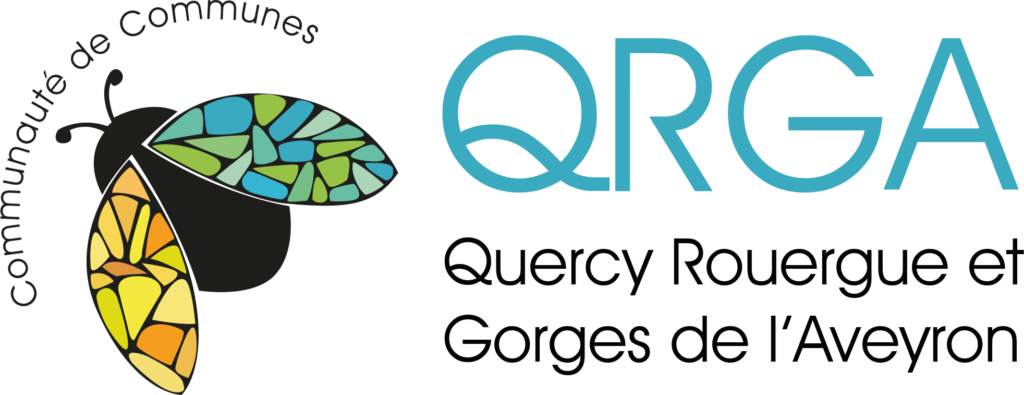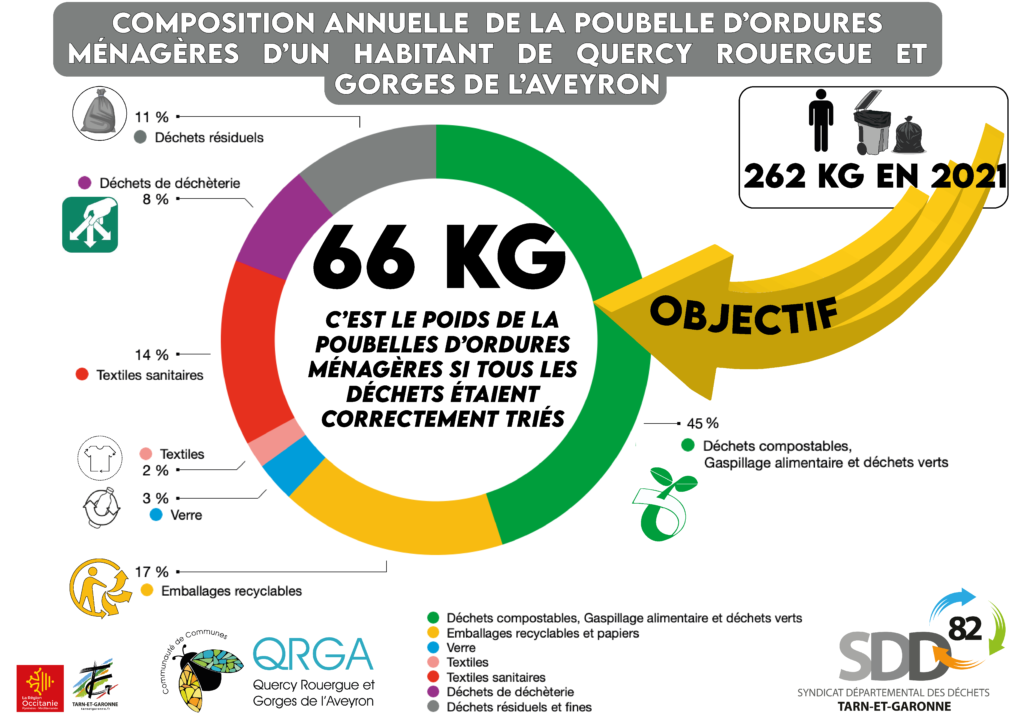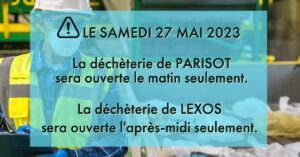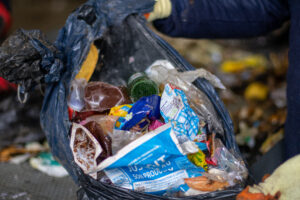collecte des déchets
History
1988 : Création du Syndicat Intercommunal de Collecte et de Traitement des Ordures Ménagères (SICTOM)
5 agents, purchase of the first trucks, start-up of the incineration furnace.
1997 Constitution of the Communauté de Communes (14 communes).
Jan 2002 Creation of the Syndicat Départemental des Déchets (transfer of transport and treatment responsibilities).
Fev 2003 : Launch of selective collection of packaging and newspapers and magazines.
March 2006 Start-up of the transfer station.
June 2006 Dismantling of the incineration furnace.
March 2007 : Reception of Pétampes.
Nov 2007 Opening of the LEXOS-VAREN and PARISOT waste collection centres.
Jan 2008 : Transfer of responsibility for waste collection centres to the SDD.
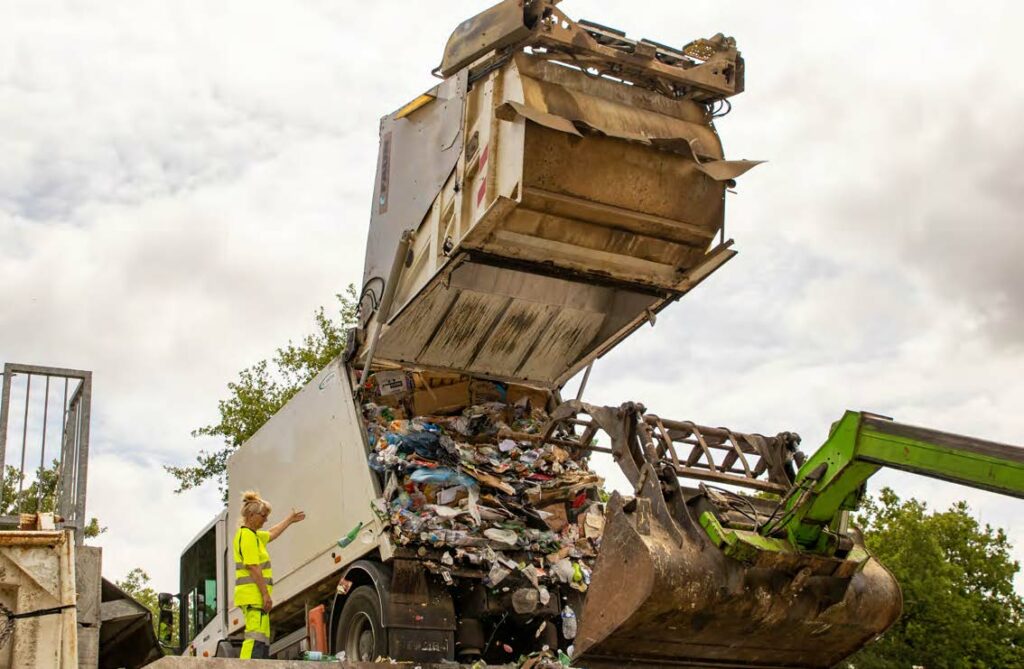
Dèchets ménagers
Waste collection is a policy that concerns us all. Permanent residents, second homes, holidaymakers, professionals... we all generate waste that needs to be collected and treated properly to reduce our environmental footprint. Household waste collection is more than just an inter-municipal responsibility; it is crucial to preserving and enhancing the quality of life in our region.
The issue of sorting our waste is becoming increasingly important, and is a challenge we have to face. On the one hand, it's a financial challenge, because the cost of treatment is constantly rising (increase in fuel, TGAP, etc.). It's also an environmental and social challenge, because sorting errors have a negative impact on the environment and represent a significant cost for the community and, ultimately, for residents via the TEOM.
As it happens, our region is not a good pupil in this respect. The aim of the following dossier is to explain in detail how waste collection and treatment works and how it is financed. It also aims to raise awareness of the need to reduce and better sort our waste, in order to control the cost of this public service. This will require efforts on the part of the local authority in terms of management and resources, but it will also require "small gestures" on a daily basis (selective sorting, composting, etc.) that I invite you to adopt.
In Quercy Rouergue and Gorges de l'Aveyron, we are fortunate to be able to count on dedicated staff who are driven by the desire to serve you as well as possible. That's why I'm convinced that, together, we can rise to the challenge.
Composting
What is composting?
It's the decomposition of natural, degradable waste (food scraps, peelings, garden waste, etc.) into a natural, very rich fertiliser, similar to topsoil: compost.
Why compost?
· Produire un fertilisant naturel et gratuit pour le jardin et les cultures qui, de plus, améliore la capacité du sol à retenir l’eau.
· Alléger le poids de nos poubelles d’ordures ménagères (1/3) et donc diminuer les pollutions et les coûts liés au transport et au traitement
How does it work?
Under the right conditions, bacteria and fungi present on or in food (micro-organisms), insects (micro-fauna) and small invertebrates (worms) work to break down matter.
By composting, we reproduce the decomposition process that occurs naturally in a forest.
1.Le compostage en tas
Biodegradable waste left in a heap at the bottom of the garden can eventually be composted. However, this method requires space. The heap is often unsightly, inconvenient to turn over and aerate, and may be visited by your pets and other pests. Composting takes a long time and the end result is compost that has lost some of its nutritional qualities because it is washed away by the rain.
The heap is only suitable for very large volumes of compost.
2. On-site composting
This involves depositing your bio-waste under the mulch in your growing areas.
Advantages: it's simple and highly effective.
Disadvantages: you won't have any compost to hand for repotting or planting trees and shrubs, and there's a risk that your pets will go picnicking there.
3.Le composteur en bac individuel
This is a large container in which the decomposition of organic matter is optimised to produce compost quickly. This option is ideal for households with outdoor space. Composting in a bin is suitable for smaller volumes. It keeps the waste out of sight and protected from animals and the vagaries of the weather. A closed composter gives a better quality result but requires more regular monitoring (see compost management advice below).
4.Le compostage collectif
Une solution adaptée pour un groupe de particuliers qui ne disposeraient pas d’espace extérieur individuel. Un ou plusieurs composteurs peuvent être installés en bas d’un immeuble ou dans un parc à disposition de ce groupe. Dans un tel cas, la CC QRGA demande que (au minimum) deux membres de ce groupe d’habitants suivent notre formation gratuite de Référent de Site. Ces Référents de Site sont les interlocuteurs directs des utilisateurs du site. Ils bénéficient de l’appui et du soutien des Guides Composteurs et Maitres Composteurs de la CC QRGA en terme de formation, animation, assistance et suivi de long terme. Pour vos questions sur le sujet du compostage collectif merci d’écrire à preventiondéchets@cc-qrga.fr ou d’appeler le 05 63 65 77 89
5. Other solutions
Vermicomposters (composting in small boxes with glasses of soil) and Bokashi (fermentation in a small container) are solutions for small volumes that do not require outdoor space.
For professionals producing large volumes, we talk about in-house composting.
1. Vary your intake
Add a little bit of everything in pieces (including citrus fruits). For every 1 dose of "green, moist, nitrogenous" matter (fruit and vegetables, etc.) add ½ dose of "brown, dry, carbonaceous" matter (shreds, dead leaves).
2. Ventilate
It's important to stir the compost regularly, using a fork, a stirring harpoon or a compost stirrer.
3. Moisten
Proper humidification ensures a good composting process
- · Choisir l’emplacement et installer votre composteur
Adapted to your composter, it should not be too far from your house (the kitchen bucket should be emptied regularly). Your composter will appreciate a semi-shaded corner, protected from gusts of wind and very flat. It must be placed on a flat surface. It is preferable to place it on grass to allow the soil's micro-organisms to penetrate. If this isn't possible, don't worry - the micro-organisms on and in your food and the insects in the vicinity will still do the job.
- · Remplir votre composteur pour la première fois
To prevent liquids from stagnating in your composter, start by filling it with small twigs, straw, shredded material, etc.
When your biobucket (kitchen container for your bio-waste) is full, pour it into your composter.
After several contributions, think about digging a small crater in your bio-waste (a small gardening claw can prove useful) and pour the contents of your biowaste container into it. Cover with a little "dry" material (dry leaves, shredded material, etc.). For every dose of "wet" material you bring in (your peelings and food scraps), add half a dose of "dry" material.
For the next addition, start by stirring the contents with an aeration tool (harpoon, brass'compost, gardening claw, etc.) over a distance of around twenty centimetres, then make a crater, pour in the contents of your biobucket and cover with dry matter.
And so on.
Unless you bring in a very large quantity, the 400L composter supplied by the CC QRGA is sufficient for a family of two adults and children. After a few months (around 6), you will notice that the material in your composter has almost halved.
- We compost:
- Leftovers Fish and meat are reserved for experienced cooks.
- Fruit (including citrus) and vegetables,
- Peeled and damaged Cut into pieces, raw or cooked. It is a moist, nitrogenous material.
- Paper towels and tissues
· non colorées En petite quantité.
· Petit carton brun (rouleau d’essuie-tout), boites
· d’œufs Découpés en morceaux, en petite quantité.
· Coquilles d’œufs Concassées. Ne se décomposent pas mais apportent du calcaire. Peut-être utiliser en paillage.
· Coquilles d’arachide et de noix Concassées. En petite quantité. Peut-être utiliser en paillage.
- We don't compost:
· Sacs plastiques, couverts, vaisselle même s’il est mentionné « biodégradable » ou
« compostage ».
- Earth, stone, rubble, ashes.
- Pet excrement and litter (even "biodegradable" or "compostable")
- Coloured newspapers, magazines, food packaging and cardboard.
- Glass, metal and plastic are recycled
- Meat, fish (for experienced cooks only)
- What about garden waste? I don't see why not.
· Tontes de gazon Fraiche, elle est considérée comme une matière azotée (humide) et peut être ajoutée pour humidifier votre compost. Sèche, c’est une matière carbonée, elle structure le mélange. Toujours l’incorporer en petite quantité et bien la mélanger. Pour les grosses quantités, favoriser l’utilisation de la tonte sèche en paillage au potager et autour des arbres ou en jardin en lasagne.
· Fumier (cheval, mouton, âne…) Avec parcimonie.
- Hedge trimming, coarse sawdust, wood shavings Diameter <1cm and fragment <10cm. Shred. Use this carbonaceous material to structure and aerate the compost.
· Feuilles mortes A mélanger avec les matières humides petit à petit. Faites-vous-en un stock protégé de l’humidité pendant l’hiver
To recognise mature compost, all you need to do is make a few simple observations:
- A scent of undergrowth emanates from the material
- The compost is brown, almost black in colour
- It is impossible to recognise the materials introduced at the beginning, everything is fine and homogeneous (apart from the small branches you put in to structure your compost).
- There are far fewer worms and insects
Few plants can tolerate pure compost, so mix it with soil.
- · 3 à 4 mois :
A very coarse material that can be used as a mulch. Spread a few centimetres over cultivated areas and around trees and shrubs, it will limit evaporation and weed regrowth while gradually enriching the soil.
- · 6 à 8 mois :
Semi-walled compost, fairly coarse, can be spread on the soil as an amendment.
- · 10 à 12 mois :
Mature compost. Whether sieved or not, it should smell of the forest, be black and crumbly and contain no visible elements of your inputs (except for those that do not decompose or decompose only very slowly, e.g. eggshells, wood, etc.). To plant, sow or repot, mix 50% with garden soil.
Don't delay using your mature compost as it will mineralise and lose its nutritional properties over time.
- · A quelle régularité brasser ?
The regularity of stirring depends on the quantity of feed. The more you add, the more regularly you should stir. During the winter, it is not advisable to stir so as not to cool the compost too much. Otherwise, a weekly surface stir (20cm) and a monthly deep stir (to homogenise the compost) are recommended. Every compost is unique, and these recommendations should be adapted to your particular situation and experience.
- · Comment tester l’humidité du compost ?
Perform the "fist test": take some compost in your hand and squeeze. If a liquid runs out, the compost is too wet and you need to add brown matter (dried leaves, shredded material, etc.). If the compost stays in shape when you open your hand, it's fine. If the compost crumbles when you open your hand, it needs to be moistened. To do this, water lightly and stir. Repeat the fist test the next day and readjust.
- · Et pour les fleurs en graines ou plantes malades ?
If composting is carried out properly, a rise in temperature will occur (approaching 60 degrees Celsius) and pathogens will be destroyed. This practice should be reserved for experienced composters.
- · Que faire en cas d’installation d’animaux nuisibles ?
It's important to visit your compost regularly to make sure it's in good condition. Compost that is regularly stirred and has a good moisture content will not attract pests. If you see midges, aerate, stir, add dry matter and leave the lid open for a few days. If rodents settle in, you need to stir more regularly, avoid adding meat and fish, and even grill the bottom of the composter.
· Peut-on commercialiser son compost ?
As an individual, the answer is no. Your compost is your own and must be used by you.
Regulations
By 1 January 2024, the French Anti-Waste and Circular Economy Act will require biowaste (food scraps, kitchen waste and garden waste) to be sorted at source. Local authorities must provide their residents with solutions so that bio-waste is no longer thrown away in household waste.
Do you have a problem or a question?
Contact our guides and master composters at the technical services of the community of communes of Quercy Rouergue and the Gorges de l'Aveyron at 05 63 65 77 89 or write to us at preventiondechets@cc-qrga.fr
